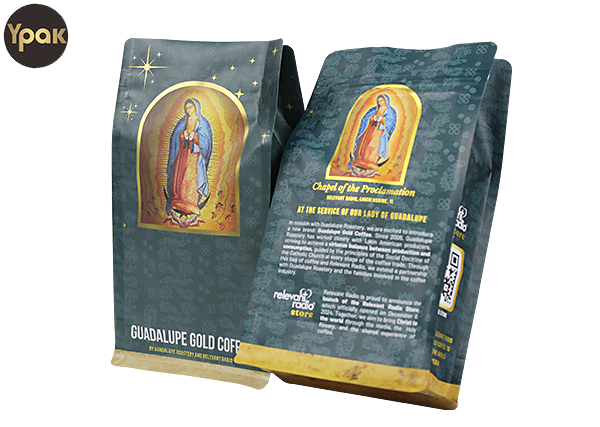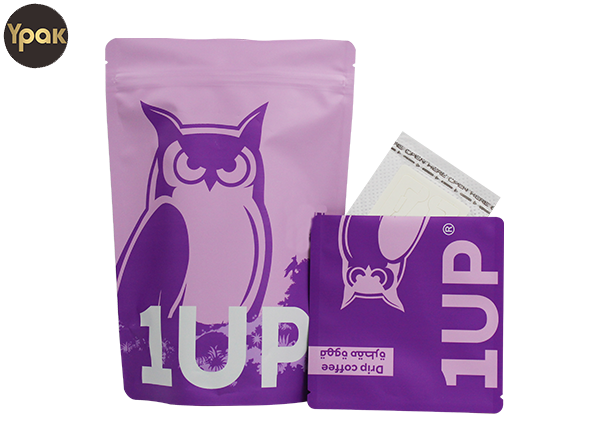How to package coffee?
Starting the day with freshly brewed coffee is a ritual for many contemporary people. According to data from YPAK statistics, coffee is a beloved "family staple" worldwide and is expected to grow from $132.13 billion in 2024 to $166.39 billion in 2029, a compound annual growth rate of 4.72%. New coffee brands are emerging to capture this huge market, and at the same time, new coffee packaging that is increasingly in line with development trends is also beginning to be born quietly
In addition to creating unique products, brands must also address the sustainability of packaging to attract environmentally conscious consumers. Across all categories, roasted and ground coffee bean brands have taken the lead in turning to sustainable packaging, while high-volume instant coffee brands have been slower to develop.
For many coffee brands, the move toward sustainable packaging is twofold: these brands can replace traditional heavy glass jars with refill bags, which are the clear shipping winners of rigid packaging. Lightweight packaging provides significant efficiencies throughout the supply chain, as flexible packaging bags mean more packaging can be shipped in each container, and their lighter weight significantly reduces supply chain transportation emissions. However, most of the common coffee soft packaging, due to its need to keep fresh, is in the form of composite packaging, but these will face the challenge of non-recyclability.
Following the trend, coffee brands must carefully choose sustainable packaging that can retain the rich and delicious flavor of coffee, otherwise they may lose loyal customers.


High barrier single material packaging
The development of high-performance barrier coatings represents an important moment for the industry. Kraft paper laminated with PE or aluminum foil provides the required barrier properties for packaging roasted and ground coffee, but still cannot achieve the required recyclability. But the development of paper substrates and barrier coatings will enable brands to begin to move to more sustainable and recyclable packaging models.
YPAK, a global flexible packaging producer, is addressing this problem with a new recyclable metallized packaging made entirely of paper. Its monopolymer material aims to make plastic more sustainable. Because it is made of a single polymer, it is technically recyclable. However, it is difficult to realize its full benefits without investing in the right recycling infrastructure.
YPAK has developed a monopolymer series that claims to have comparable barrier properties. This helped a coffee brand that previously used cans with inner bags to upgrade to high-barrier mono-material flat-bottom coffee packaging with coffee valves. This enabled the brand to avoid sourcing packaging from multiple suppliers. They could also use the entire packaging surface of the flat-bottom bag for branding without being restricted by label size.
YPAK spent two years developing the new sustainable packaging. Sacrificing any quality for coffee freshness would have been a big mistake and would have disappointed many of our loyal customers. But we knew that continuing to use packaging that was difficult to recycle was also unacceptable.
After a long time of grinding, YPAK found the answer in LDPE #4.
YPAK's bag is made of 100% plastic to keep its coffee food safe and fresh. And, the bag is recyclable. Specifically, it is made of LDPE #4, a type of low-density polyethylene. The number "4" refers to its density, with LDPE #1 being the densest. The brand minimized this number as much as possible to reduce its use.
The YPAK-designed bag also has a QR code that customers can scan to go to a page that tells them how to recycle it, which promotes a circular economy by reducing carbon emissions by 58%, using 70% less virgin fossil fuels, 20% less material, and increasing the use of recycled materials to 70% compared to previous packaging.


We are a manufacturer specializing in producing the coffee packaging bags for over 20 years. We have become one of the largest coffee bag manufacturers in China.
We use the best quality WIPF valves from Swiss to keep your coffee fresh.
We have developed the eco-friendly bags, such as the compostable bags and recyclable bags,and the latest introduced PCR materials.
They are the best options of replacing the conventional plastic bags.
Our drip coffee filter is made of Japanese materials, which is the best filter material on the market.
Attached our catalogue, please send us the bag type, material, size and quantity you need. So we can quote you.
Post time: Nov-15-2024







